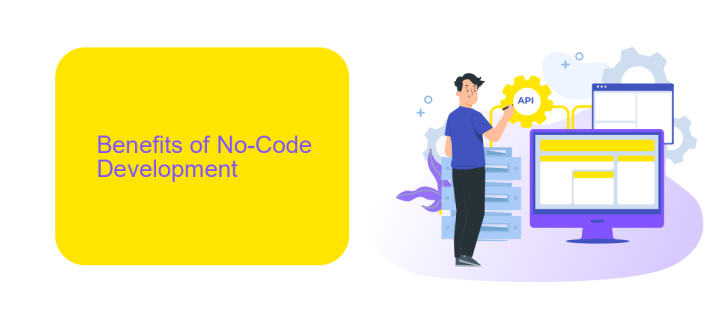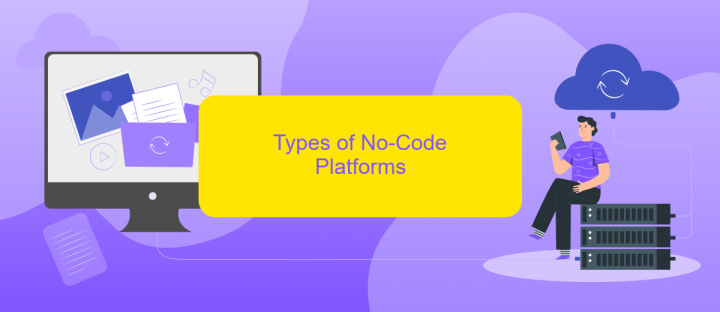No-Code Dev
In today's rapidly evolving tech landscape, the no-code development movement is revolutionizing the way applications are built. Empowering individuals with little to no programming knowledge, no-code platforms enable users to create sophisticated software solutions quickly and efficiently. This democratization of technology is not only accelerating innovation but also making it accessible to a broader audience, fostering creativity and productivity across various industries.
Introduction to No-Code Development
No-code development is revolutionizing the way we create software by allowing individuals without traditional programming skills to build applications. This approach leverages visual interfaces and pre-built modules, making it accessible to a broader audience. It democratizes the development process, enabling business professionals, marketers, and other non-developers to bring their ideas to life.
- Visual Interfaces: Drag-and-drop builders simplify the design process.
- Pre-built Modules: Ready-made components accelerate development.
- Integration Tools: Services like ApiX-Drive facilitate seamless integrations.
One of the significant advantages of no-code platforms is their ability to integrate various services effortlessly. Tools like ApiX-Drive allow users to connect different applications and automate workflows without writing a single line of code. This capability not only saves time but also enhances productivity by ensuring that all systems work harmoniously together. As a result, no-code development is becoming an essential tool in the modern digital landscape.
Benefits of No-Code Development

No-code development offers numerous benefits, making it a game-changer for businesses and individuals alike. One of the primary advantages is the significant reduction in development time. Traditional coding can be time-consuming, requiring extensive knowledge and experience. In contrast, no-code platforms enable users to create fully functional applications rapidly, often within hours or days. This accelerated development process allows businesses to respond quickly to market demands and stay ahead of competitors.
Another key benefit is cost efficiency. By eliminating the need for specialized developers, no-code solutions reduce labor costs and make technology accessible to non-technical users. This democratization of development empowers teams to innovate and solve problems independently. Additionally, no-code platforms often come with built-in integrations, such as ApiX-Drive, which streamline the process of connecting various services and automating workflows. This not only enhances productivity but also ensures seamless data flow across different systems, further optimizing business operations.
Types of No-Code Platforms

No-code platforms have revolutionized the way individuals and businesses develop applications without needing extensive programming skills. These platforms can be categorized into several types, each catering to different needs and use cases.
- Website Builders: These platforms allow users to create and manage websites easily. Examples include Wix, Squarespace, and WordPress.
- App Builders: These tools enable the creation of mobile and web applications. Popular options are Adalo, Glide, and Bubble.
- Automation Tools: These platforms help automate workflows and integrate various services. ApiX-Drive is a notable example, offering seamless integration between different applications and services.
- Database Managers: These platforms allow users to create and manage databases without coding. Airtable and Knack are leading options in this category.
These no-code platforms empower users to build functional and customized solutions quickly and efficiently. Whether you need a website, an app, automated workflows, or a database, there's a no-code platform available to meet your requirements.
Use Cases for No-Code Development

No-code development platforms have revolutionized the way businesses approach software creation. These platforms enable individuals without a technical background to build applications, automate workflows, and create websites, significantly reducing the time and cost associated with traditional development.
One of the primary use cases for no-code development is prototyping. Companies can quickly create prototypes to test ideas and gather user feedback without investing in full-scale development. This accelerates the innovation process and allows for rapid iteration.
- Automating business processes
- Building internal tools
- Creating customer-facing applications
- Integrating various services and APIs
Another significant use case is integrating different services. Tools like ApiX-Drive allow users to connect various applications and automate data transfer between them without writing a single line of code. This simplifies the integration process and enhances operational efficiency. Overall, no-code platforms empower organizations to innovate faster and more efficiently.
- Automate the work of an online store or landing
- Empower through integration
- Don't spend money on programmers and integrators
- Save time by automating routine tasks
Future of No-Code Development
The future of no-code development is poised to revolutionize the way we approach software creation. As technology advances, no-code platforms are becoming more sophisticated, enabling users to build complex applications without writing a single line of code. This democratization of software development empowers individuals and small businesses to innovate and solve problems quickly, reducing the dependency on traditional developers. With the integration of AI and machine learning, no-code tools are expected to become even more intuitive, making it easier for non-technical users to bring their ideas to life.
Integration capabilities will also play a crucial role in the future of no-code development. Tools like ApiX-Drive are already simplifying the process of connecting various applications and automating workflows. As more businesses adopt no-code solutions, the demand for seamless integrations will grow, driving the development of more robust and user-friendly integration services. This will not only enhance productivity but also open up new possibilities for innovation, as users can easily combine different tools and data sources to create unique, customized solutions.
FAQ
What is No-Code Development?
Who can benefit from No-Code platforms?
How secure are No-Code applications?
Can No-Code platforms handle complex integrations?
What are some common use cases for No-Code tools?
Time is the most valuable resource in today's business realities. By eliminating the routine from work processes, you will get more opportunities to implement the most daring plans and ideas. Choose – you can continue to waste time, money and nerves on inefficient solutions, or you can use ApiX-Drive, automating work processes and achieving results with minimal investment of money, effort and human resources.


